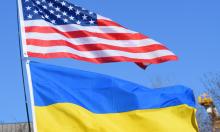Recruiting CIA agents was one of our goals
Question: Mr. Leonov, you are Latin America specialist. To what extent were our special services interested in this continent, since the major cold war opposition was between the USA and America?
Answer: The opposition between the two superpowers was exercised in the rivalry for the influence in the countries of the third world. There was a principal in those days: geopolitical victory will be achieved by the party that convinces the third world follow it. The USSR’s positions in the third world were stronger than those of the USA, from both military and political points of view. The USA prevailed from the economic point of view. There were countries that were connected with us politically and militarily, and they obtained their vision from us, as well as arms, but they were economically connected with the capitalist West. Let’s take Syria, for example. This is a very close and friendly country for us: our ally. Our vessels were based in its ports, but its economic links were Western links, 98%. This was the unbalance in our relations. We were trying to strengthen our positions in Latin America (Cuba, Nicaragua, Chile, Peru, and other countries), which tried to repeat the socialistic experiment. We helped the people of Panama to get the Panama Canal back under their control, and we succeeded often in that respect. If the well-known events had not happened in the Soviet Union, then the forces that were enabled in the exterior front would have been sufficient to guarantee our final victory.
Q: Your major goal was exerting influence on the governments of those countries, or were you trying to recruit personnel?
A: I would not even separate those issues. Our goals were always complex ones. Recruiting agents of the Central Itelligence Department, the Americans themselves, and agents of other American economic, diplomatic, and military departments – this was our goal. However, if there was an opportunity to affect the political situation in this or that country, we worked with the government, public figures, and journalists in order to prepare the ground for strengthening the USSR's positions.
Q: You mentioned Chile. Why was the coup d’etat of 1973 successful in this country?
A: We knew that a coup in Chile would inevitably happen. The correlation of forces was not good for us, which is why we did not render all the necessary help from the state. This issue was discussed as whether to give another loan to Chile or to send weapons there. The intelligence was against both. Chile’s President Salvador Allende was playing according to the democratic rules, and he was a naive leader in this respect. He did not dare to use military ways against his adversaries who had launched terror against him. He would address the parliament and courts instead. It was all over with the fact that “the fighters for democracy” arranged the military coup, shooting the presidential palace and the president himself. We warned Allende about a possible coup, but he would not listen. He believed that he had come to power by means of elections, but as a matter of fact, he had to face a terrorist gang. I cannot say anything different about Pinochet. You know what the consequences of the coup were. No even tries to conceal the fact that Pinochet was an American agent. Murderers came to power in this particular case.
Q: There is a book that is called Moles in the USA, which is about our spies in America. According to this book agents such as John Walker and Aldredge Ames offered their services to us for material reasons only. Is it true?
A: I am not informed about the details of the recruiting operations that were connected with the people you mentioned. We had a special division that was in charge of the agents of special importance. On the grounds of the criminal proceedings that were instituted against those people, the Americans came to the conclusion that there was a certain category of people in the USA who were ready for recruitment from the point of view of their financial problems. We carried out a research among the officials of the State Department, the Pentagon, and other relevant state departments and found out that there were over four thousand agents who experienced various financial problems, such as debts, finding large loans to build houses, and so on. The American special services took all of them under their control as potentially vulnerable people. However, one cannot talk about the material factor only. The secret services of other countries could also pay money, so there was a political aspect as well.
Q: Is it true that it was Ames who informed Moscow that KGB officers such as Boris Yujin, Sergey Vorontsov, and Oleg Gordiyevsky were American spies?
A: These are questions to which I do not know the answers. Speaking about Gordiyevsky, our intelligence suspected that he worked with the adversary. Any betrayer who writes memoirs does not deserve any respect. Such a person has to find excuses for his new masters. Any betrayer always exaggerates his significance, which is a common trait of the people who betray, which is why they usually become superspies in literature.
Q: Colonel Yurchenko is probably one of the strangest deserters. He escaped in 1985 from the KBG residence in Rome to the USA, and several months later, he suddenly came to the Russian embassy in Washington and confessed his guilt.
A: I remember that very well. Because I sent Yurchenko abroad myself and I gave the task to him, I was ready to claim responsibility for his escape. Everything that he said at the press-conference in Moscow after his return from the States was a lie. As soon as Yurchenko returned to the embassy, we tested his blood samples, and everything was fine; the Americans had not made him use drugs as he claimed it. His escape and return is still a puzzle. He was not legally pursued, because it happened during the moment which was politically good for us. He returned to the USSR when Gorbachev was about to meet with Reagan for the first time in Geneva. Therefore, it was very important for us to use Yurchenko’s version: he was forced to take the psychotropics. He played his role as a political actor.
Q: You surely know the movie that was very popular during the Soviet period: “TASS is Authorized to Announce.” It was about intelligence and counterintelligence. There was an American agent in the movie who was getting help from drug dealers. Did such things exist in reality?
A: It is quite possible. Cooperation between the CIA and the criminal organizations was an officially allowed practice in the CIA. Contacts with criminal structures were prohibited for us, as it was a taboo.
Q: Why is the FBI invulnerable, even for the president? John Kennedy wanted to suppress this department, and he was shot as a result.
A: The American secret services start their own policy from time to time, like the press or large capital. They start to influence the leadership in their own way. President Jimmy Carter set up a commission in 1976 to investigate the CIA’s activity. At that time, it became known that CIA had the habet of killing state officials of other countries independently. It turned out that they were involved in Lumumba’s assassination and there were plans to kill Fidel Castro. The horrible facts about the CIA’s activity followed one after another. The CIA’s staff was reduced, and they were not allowed to carry out terrorist actions. It was recommended not to give money for obtaining information, because there was too much of it. It was recommended to accelerate the analytical work with those materials. The FBI is not that vulnerable, because it works within the USA. It has a rather glorious history. The FBI investigates not only the counter-intelligence operations, but all large crimes in the USA.
Q: A representative office for the FBI has recently been opened in Moscow. Do you think that this department might support our pseudo-democratic mass media politically or financially? The newspaper Versia (Version) published a letter written by Oleg Kalugin, who resided in America. The letter was addressed to president Putin, and he wrote that Putin is the most dangerous political figure of Russia and that he is a very dangerous for the Russian democracy. Do you think that such publications were products of the FBI?
A: I never quote betrayers, as I never trust them. Kalugin is an unhappy person, and he now works with tourists in America, showing them the places where the Soviet intelligence used to work. He will say anything that is good for the United States. At that time, there was a need to put psychological pressure on Putin, and they were using any possible means. Time has shown that Putin does not pose a threat to democracy. All the structures that were set up by Yeltsin still work, and Putin is strengthening the courts and respects the Duma.
Q: You were in New York when Yury Drozdov was a resident there. Did you know that Arkady Shevchenko, the deputy of the UN secretary-general for political issues and the USSR’s ambassador extraordinary and plenipotentiary to the UN, began working for the enemy?
A: I was in the USA at that time, and I met Shevchenko at one of the receptions. I was astonished when he addressed me with the words “Hello, comrade general!” There was a feeling that Shevchenko was speaking for FBI’s microphone. His undue familiarity and tactlessness struck me. To top it off, he was drunk. We knew that Shevchenko was a close friend of Gromyko’s family (Gromyko was the foreign minister of the USSR). We did not have any relations with Shevchenko, and he did not know anyone from the secret intelligence service. He became an alcoholic afterwards, and gave way to despair and that brought him totally down. Shevchenko is a typical product of the collapse of the system. He escaped because of fear for his career, because he had been caught with prostitutes. This made him become a betrayer. A betrayer is a bastard. His wife committed suicide, having found out about her husband's betrayal. This is a tragedy.
Q: The fact that the agents of the secret services came to the Soviet Union embassy offered their cooperation, what was this? Bad work of the FBI, or the good work of our counterintelligence?
A: Our intelligence has nothing to do with it, because the people were coming and offering their services. This testifies to the fact that FBI was not working well. The people were drawn to our system, to our culture, and our history. The best agents were obtained not with the help of the money, but with the help of ideological sympathies.
Nikolay Leonov was interviewed by Ilya Tarasov PRAVDA.Ru
Translated by Dmitry Sudakov
Subscribe to Pravda.Ru Telegram channel, Facebook, RSS!




